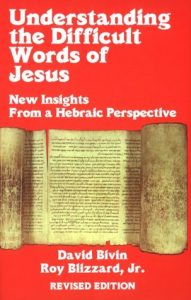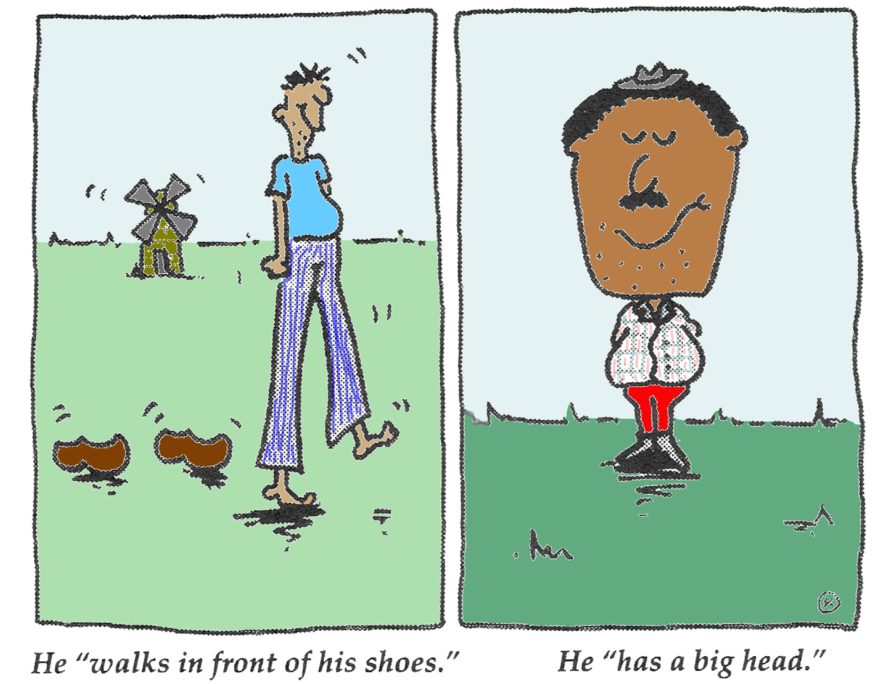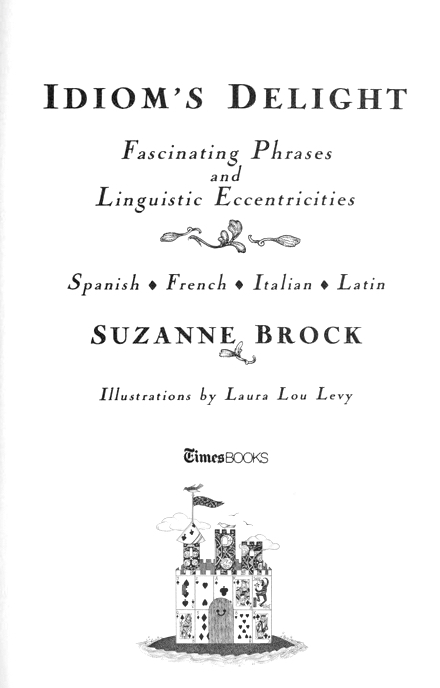One problem with translating one language into another is how to deal with idioms. If you translate idiomatic expressions literally there is a chance they will be misunderstood. We understand the common phrase, “It’s raining cats and dogs,” but put that literally into another language and it probably won’t make much sense.
To illustrate, let’s look at a few Spanish phrases. “Echar flores” would be literally translated “to throw flowers” and if the context didn’t help, you might not know it’s similar to our idiom, “to butter someone up”. Or what about, “Quemarse las pestañas”, which translates, “to burn your eyelashes”, but is like our idiom, “to burn the midnight oil”. And one more is the phrase “Dejar a uno en la calle” which translates, “to leave someone in the street” but is comparable to our idiom, “to take somebody to the cleaners”. (These examples are taken from Idiom’s Delight by Suzanne Brock.)
In the case of the words that Jesus spoke we are dealing with a double translation, from Hebrew or Aramaic to Greek and Greek to English. Are there cases where Jesus was using an idiom and the meaning has been lost? Yes, in fact there are. The following is taken from Understanding the Difficult Words of Jesus:
Many Gospel expressions are not just poor Greek, but actually meaningless in Greek. One brief example will suffice to illustrate this fact. The text of Matthew 6:22-23 literally reads: “The lamp of the body is the eye. If your eye is good, your whole body is full of light; but if your eye is bad your whole body is full of darkness…”
“If your eye is good” is an idiomatic way of saying in Hebrew, “if you are generous.” But our English translators have not recognized this Hebrew idiom. Almost all translations preserve the singular, “eye,” even though “eyes” would make more sense in English. Is it necessary for only one of the eyes to be good? Which one, the right or the left? Only three translations (Good News For Modern Man, New English Bible, New International Version) have felt the absurdity of “eye.” These translations have translated “eyes” in spite of the fact that the original Greek text has “eye.”
 More variety exists in the translation of the word “good.” Weymouth and the New International Version translate literally. But obviously, “good” in relation to an eye means nothing in particular. (Weymouth tries to solve this problem by translating eye as “eyesight” – “If your eyesight is good”!) Other translators simply guess at the meaning of “good.” “Single” is the traditional translation of “good” (King James, American Standard). Most modem versions prefer “sound” (Amplified, Goodspeed, Jerusalem Bible, New Berkeley, New English Bible, Phillips, Revised Standard, Williams). Other suggestions are “clear” (Good News For Modern Man, New American Standard), and “pure” (The Living Bible). Only James Moffatt translates “good eye” as “generous,” but even he uses “sound” in the Lukan parallel to Matthew 6:22 (The same Greek word for “good” appears in both places.) Apparently, by the time Moffatt reached Luke 11:34 he was already beginning to have some doubts about his translation of Matthew 6:22.
More variety exists in the translation of the word “good.” Weymouth and the New International Version translate literally. But obviously, “good” in relation to an eye means nothing in particular. (Weymouth tries to solve this problem by translating eye as “eyesight” – “If your eyesight is good”!) Other translators simply guess at the meaning of “good.” “Single” is the traditional translation of “good” (King James, American Standard). Most modem versions prefer “sound” (Amplified, Goodspeed, Jerusalem Bible, New Berkeley, New English Bible, Phillips, Revised Standard, Williams). Other suggestions are “clear” (Good News For Modern Man, New American Standard), and “pure” (The Living Bible). Only James Moffatt translates “good eye” as “generous,” but even he uses “sound” in the Lukan parallel to Matthew 6:22 (The same Greek word for “good” appears in both places.) Apparently, by the time Moffatt reached Luke 11:34 he was already beginning to have some doubts about his translation of Matthew 6:22.
Understanding The Difficult Words Of Jesus is an excellent way to get started learning about the Jewish heritage of the Christian faith. The book presents a strong argument that Jesus spoke Hebrew and goes on to demonstrates how powerful a tool that knowledge can be by explaining a number of difficult-to-understand sayings of Jesus.
































































































